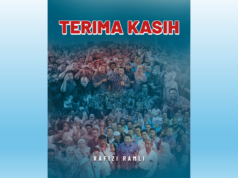KUALA LUMPUR: MCA vice-president Gan Peng Sieu has questioned Pakatan Rakyat’s logic of leaving out the Indian community in its election manifesto but not Felda settlers and Orang Asli.
Taking on PKR strategy director Rafizi Ramli in a debate last night, Gan said while Pakatan tried to justify the matter saying Indian problems should be addressed in totality, they did not explain why they have spelled out specific measures for other communities.
“If you are talking about making need-based policies non-communal, it’s obvious from the manifesto that you have special visions for the Felda settlers and Orang Asli. These are specific communities,” he added.
Earlier, Rafizi said Indians are not mentioned in the manifesto because the opposition pact wanted to do away with racial politics.
“Although there was loud objection from certain group of Indians, I was not apologetic to that. Because if we are serious about reform and remaking the country beyond racial lines, then we cannot write manifestos along racial lines.
“What makes the Indians poor is precisely what causes the Chinese to be poor. What denies the Indian scholarships is precisely what makes the backwardness of the Malay education,” he said.
Several Indian NGOs such as Hindraf have criticised Pakatan for ignoring the needs of the Indian poor in its election pledge unveiled on Monday.
 The manifesto however pledged to uphold justice for Felda settlers including restructuring all shareholders of Felda Global Ventures (FGV) and preserve the Orang Asli rights of land and welfares.
The manifesto however pledged to uphold justice for Felda settlers including restructuring all shareholders of Felda Global Ventures (FGV) and preserve the Orang Asli rights of land and welfares.
The two-hour debate, entitled “the future of my party”, saw the two rising political stars cross swords on various issues ranging from the country’s future political outlook to Pakatan’s prime minister candidate.
Gan, when questioning the manifesto, claimed that Pakatan would need an additional RM200 billion to implement all its pledges
This included RM50 billion to implement its pledges to acquire concessional highways, RM8 billion to abolish the National Higher Education Funds scheme (PTPTN), RM20 billion to reduce fuel price, RM97.3 billion to increase the household income to RM4,000 a month, and billions of ringgit to pay oil royalties to the four oil-producing states.
“On one hand you are trying to lower petrol price, on the other you are complaining about public transport. So what’s your priority? You abolish PTPTN because you want votes from the graduates. Who doesn’t want free lunch? But can they last?
“This raises a question of eventuality. The government only receives RM200 billion from Petronas and other source of revenues every year. Who is going to foot the bill now or after?” he asked.
Eleminating corruption
Rafizi said the estimates are based on the Selangor government’s record that elimination of corruption would help to save 24% of the annual budget, which is RM50 billion in Malaysia’s case.
He pointed out that Transparency-International also mentioned in its 2011 report that the practice of open-tenders and contract procurement could save RM40 billion a year.
He told FMT later that Gan’s calculations on highway was wrong because Pakatan was not going to pay a lump sum of RM50 billion but would phase it out by annual cash flow.
“The annual commitment will only cost about RM5 billion a year. Whatever you pay to commit, you will still earn in the form of saving because you don’t have to pay compensation (to highway concessionaires to stop hiking toll fares),” he said.
Rafizi also said Pakatan has never wanted to pay in order to increase household income to RM4,000 a month.
“This is a lie, we only say national policies must be rewritten so that it is not based on race, but based on minimal household income.
“Ultimately if this is achieved, the biggest beneficiary would be the Malays, because you would achieve the 30% equity,” he said, in reference to the economic goal set by the BN government.
The debate was organised by the foreign correspondents club of Malaysia and attended by 50 people.










